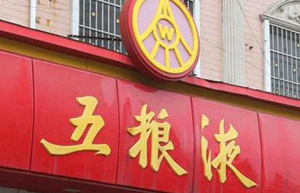Exporters make tough switch from original equipment manufacturers to makers of recognized products, reports Xu Wei.
Even after 10 years, Wang Zuping still has fresh memories of how difficult it was to promote his products to customers in the Middle East.
"To them, the Made-in-China labels meant poor quality. We went from one customer to another, and none of them wanted our products," said the chairman of Hangzhou Liangliang Electronic Lighting Co Ltd, who established his Dubai outlet in 2005.
Wang started by giving out his products, mostly light-emitting diode bulbs, for free as he sought to gain the trust of consumers.
 |
| Top 10 Chinese brands in Asia |
 |
| Top 10 most well-known Chinese brands |
His company, with a yearly production value of more than 500 million yuan ($81.7 million), now sells its products in more than 70 countries, and has outlets in North Africa, the Middle East, Russia and South America.
"Building up your own brands is a must if you want to go global. But beyond that, the quality of products is key," he said.
Wang's case is typical of many Chinese export-oriented small and medium-sized enterprises that seek to explore the emerging markets, including Africa and the Middle East, to break away from their traditional role as original equipment manufacturers.
Lack of branding and effective marketing has long been a problem for China's export sector. A report by the General Administration of Quality Supervision, Inspection and Quarantine in 2013 showed that more than 90 percent of the country's exports are sold as OEM products.
Shan Wei, director of the department for supervision and inspection of the quality agency, said that Chinese SMEs are at a crucial stage of brand-building as they compete globally.
"Our research showed that SMEs in China have much better awareness of brand-building, especially now that quality is no longer a problem. What they need most from the government is help with branding," he said.
Shan said branding and marketing are crucial for SMEs because of their financial constraints. Emerging markets, especially Africa, offer "unprecedented opportunities" for them, he said.
Chinese leaders have called for the upgrading of made-in-China products on several occasions this year as the country faces the pressure of decelerating economic growth.
President Xi Jinping said earlier this year that China should devote more effort to transforming its growth model. That effort, he said, should include the transformation of "made-in-China" to "created-in-China" products and a shift from speed to quality, as well as an emphasis on branding.
During a keynote speech at the China Quality Conference in September, Premier Li Keqiang called for the promotion of product quality and the upgrading of added value of Chinese products.
Before entering the Middle East market, Wang said his team spent a year doing research.
"Many other Chinese merchants were already doing business there and selling the same products," he said. "I was thinking: if things continue like this, I will never make a breakthrough."
"I started to realize that we must develop an advantage through making products that are unique and of good quality. We need to offer good products at good prices," he said.
